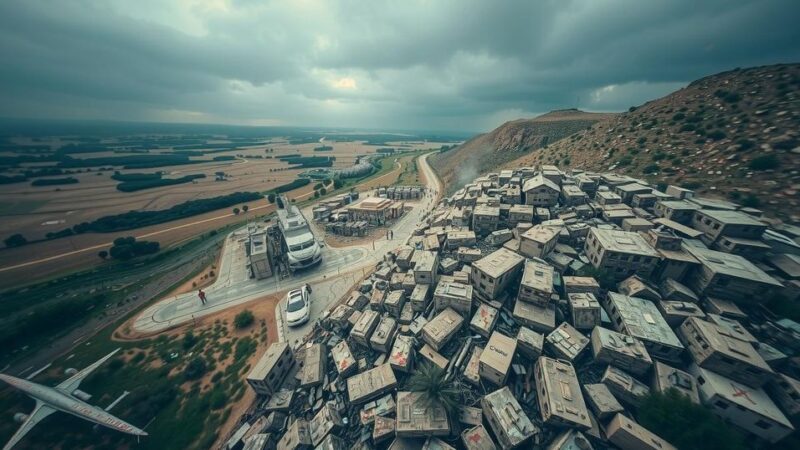Zimbabwean President Emmerson Mnangagwa met with Botswana’s new leader, President Duma Boko, to realign relations following a political upset in Botswana. The meeting emphasized rebuilding trust and pursuing mutual interests in trade and security amidst changing political dynamics in Southern Africa.
In a recent engagement, Zimbabwean President Emmerson Mnangagwa sought to pave the way for improved relations with Botswana’s newly elected leader, President Duma Boko, during World Children’s Day celebrations in Victoria Falls. This meeting follows a significant political upheaval in Botswana, where Boko’s Umbrella for Democratic Change (UDC) defeated the long-dominant Botswana Democratic Party (BDP), which had held power for nearly six decades. Mnangagwa’s hesitance to congratulate Boko earlier reflects the tension impacting Zimbabwe-Botswana relations after his ally Masisi’s electoral defeat. The discussions reportedly centered on revitalizing bilateral trust and avoiding previous diplomatic pitfalls, particularly in light of Mnangagwa’s negotiation challenges with Zambia’s President Hakainde Hichilema. An official described the meeting as crucial for nurturing cooperation, focusing on trade, border management, security, and economic partnerships. This approach indicates Mnangagwa’s desire to establish a pragmatic relationship with Boko despite their political differences. The shift in Botswana’s political landscape has the potential to challenge the hegemony of liberation movements across Southern Africa, which include Zimbabwe’s ZANU-PF and South Africa’s ANC. At Boko’s inauguration, traditional leaders, including Mnangagwa, faced public disdain, while opposition figures were met with acclaim, highlighting the growing support for alternative governance in the region. In engaging with Boko, Mnangagwa recognizes the need for a cooperative agenda, emphasizing the importance of national interests over ideological divides. Both leaders acknowledged that strong partnerships could mitigate regional instability and foster economic progress despite the shifting political tides. The meeting exemplifies Mnangagwa’s approach to navigating changing dynamics in Southern Africa as he strives to strengthen Zimbabwe’s international alliances amidst internal and external challenges.
Following a major electoral upset in Botswana, where President Duma Boko’s UDC party replaced the long-standing BDP, the political environment in Southern Africa has begun to evolve significantly. President Emmerson Mnangagwa of Zimbabwe now faces the task of recalibrating diplomatic relations with his Botswanan counterpart after the defeat of a leader closely aligned with him. This situation underscores the regional trend of increasing support for opposition parties against traditional liberation movements, posing challenges for established leaders in the area. Understanding this backdrop is essential for assessing the implications of their recent diplomatic engagement.
The recent meeting between Presidents Mnangagwa and Boko signifies a crucial step towards revitalizing Zimbabwe-Botswana relations amidst shifting political landscapes in Southern Africa. By prioritizing pragmatic collaboration over ideological divides, both leaders are working towards mutual goals in trade, security, and economic development. This engagement is not only vital for their respective nations but also reflects broader regional trends that threaten the established dominance of liberation movements. Consequently, the ability to adapt to these changes will determine the trajectory of future diplomatic relations in the region.
Original Source: www.thezimbabwemail.com



